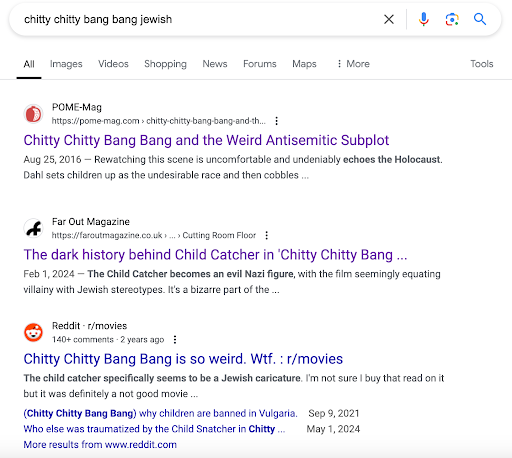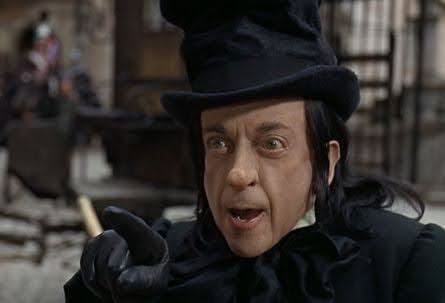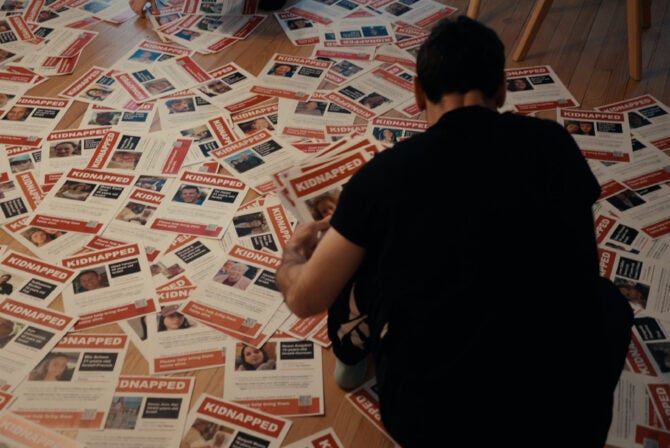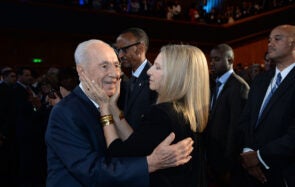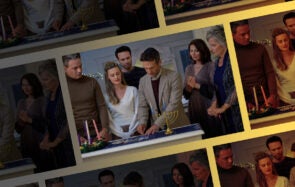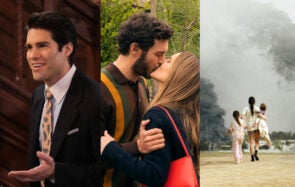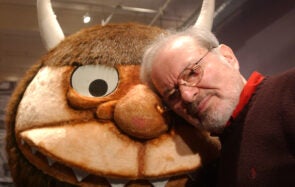This article was sent to newsletter subscribers as part of our weekly newsletter, Personal Space. Sign up to start getting it — along with our weekly recommendations — here.
Like most 2-year-olds, my daughter is in her Dick Van Dyke era. After discovering that she goes bananas for older musicals featuring lots of beautiful singing, impressive dancing, wonderful costumes and questionable morals, we showed her “Mary Poppins,” a classic that I loved watching when I was a child, and “Chitty Chitty Bang Bang,” a classic I had somehow never seen before.
She was immediately taken with “Chitty” because 1) we were watching it on the big TV 2) she had her favorite snack, a bowl of kidney beans, in her lap and 3) Dick Van Dyke!!! I too was charmed by DVD’s Caractacus Potts, a single father of two very blonde children, Jemima and Jeremy, who invents whistling candies and can turn a junk car into a swimming and flying mobile worthy of a name like Chitty Chitty Bang Bang. I found the first half of the movie to be utterly delightful… and then a story-within-a-story sequence takes us out of England and into the made-up country of Vulgaria, where children have been outlawed, a toymaker plays an outsized role in entertaining the king and queen, Jemima and Jimmy’s grandfather has been taken prisoner and there is a character called the Child Catcher.
I’ll be honest, I may not have been paying 100% attention at this point in the movie (unlike my daughter who literally never took her eyes off the screen). Things started to get pretty twisty and I was missing the earlier playful scenes of the children having a picnic on the beach with their new friend Truly Scrumptious (a candy heiress, obviously). At one point I looked up to find a dark milieu of sad children crawling around in the castle’s grotto without their parents and thought to myself “hmmmmm,” but soon enough Caractacus and Truly scheme a plot to free them, Grandpa Potts is rescued and we zoom back to the beach where we learn this was all a fantasy. Caractacus and Truly kiss, the end.
The aftermath of watching this movie was two-fold: My daughter now requests to see Mr. Potts and listen to the music from “chittychittybangbang” (said as one word super fast) every single day. And because I am the way that I am, I googled “chitty chitty bang bang jewish?” to see if there were any fun Jewish facts about the movie that I could regale my colleagues with.
What I found probably wouldn’t be classified as fun, but:
OK, so I may have been glancing at my phone here and there, but did I really miss an antisemitic Nazi subplot?
The first clue that many critics point to is that, while the movie is loosely based on a children’s book by Ian Fleming (yes, the “James Bond” author) about a magical car, the script for “Chitty” was co-written by Roald Dahl. For those who haven’t long studied the Famous Antisemites list, Roald Dahl was, indeed, a notorious antisemite, proudly saying such things as “even a stinker like Hitler didn’t just pick on [Jews] for no reason.”
The next clue is the fact that the villain of the movie, the Child Catcher, has, you guessed it, a very large nose:
The Child Catcher uses said nose to sniff out children and round them up in a cave. Coupled with the fact that everyone in Vulgaria seems to have a German accent, the parallels between Nazism are hard to miss (unless, again, like me, you are busy refilling your kid’s bean bowl).
Still, the message — and therefore, how antisemitic this all is — isn’t totally clear. As Jessica Rieck writes in POMEmag, “It’s difficult to imagine that the director and producer were unaware of the Holocaust implications of the Child Catcher and his scenes, which makes me wonder what they hoped to convey with these choices. Was their argument that a Jewish figure with power over arguably German subjects could provide catharsis? A blood-letting, of sorts? Or, suspending my disbelief, could it be commentary on how a strictly policed society (taken to the absurd in this instance) is a society doomed to fail, and using German and Jewish caricatures was sure to resonate with audiences?”
My main question since watching the film is: how desensitized am I to antisemitic caricatures that I didn’t even pick up on this one while watching? Is it such the norm that movie villains wield big schnozes and child-catching nets that it doesn’t even register for me anymore as problematic? And does this mean that I shouldn’t show this movie to my daughter again?
As for the last question, I’m thinking I’ll take the “Sound of Music” approach: play the first half of the film, with the beautiful singing and precocious children and countryside vistas, and turn off the TV when the Nazis roll in. As a modern Jewish parent, that is my right.

